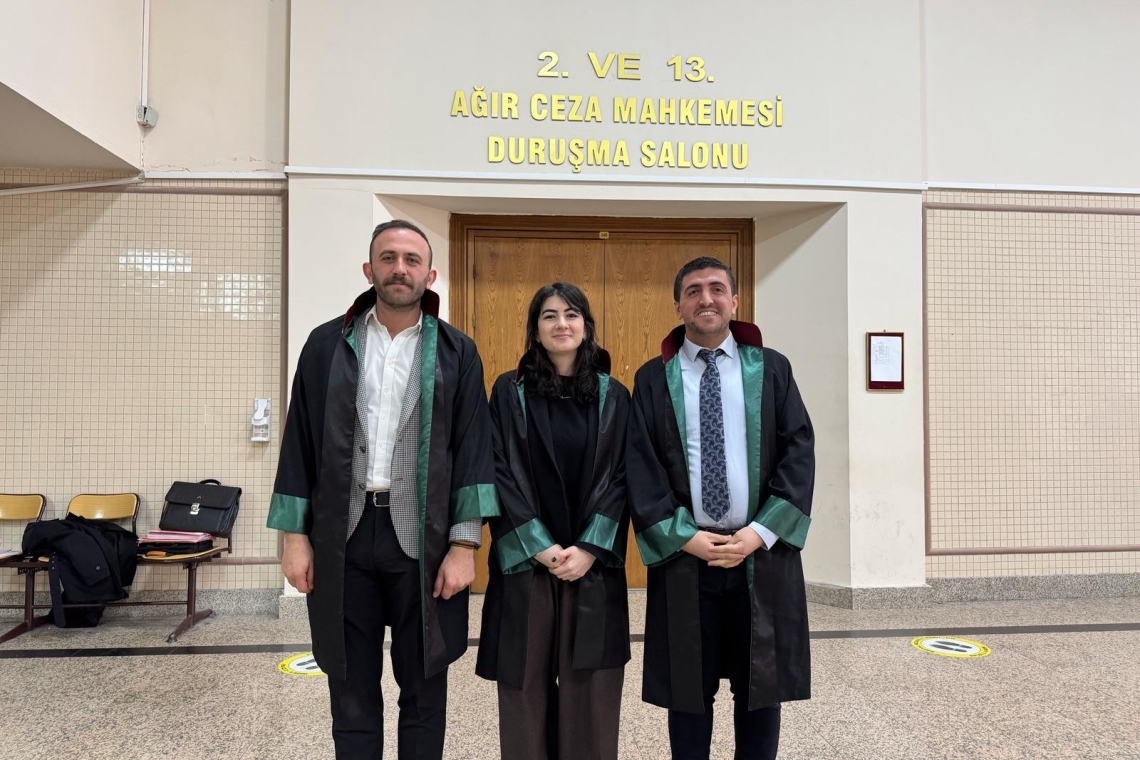Sevda Aydın
Journalist Delal Akyüz, whose legal defense is supported by the Media and Law Studies Association (MLSA), appeared before a judge for the first time after spending a year under house arrest. The court lifted the house arrest order but ruled that his travel ban would remain in place.
The first hearing in the case against Akyüz, a reporter for the Mezopotamya News Agency, was held at the Izmir 13th High Criminal Court. Akyüz is accused of "membership in a terrorist organization," with prosecutors citing his news agency's editorial policy, his phone calls with sources, and his news archive as evidence.
Joining the hearing via the judicial video conferencing system SEGBİS, Akyüz stated in his defense that the articles cited in the indictment, his communications with sources, and his social media posts were all part of his journalistic work. He rejected any claims of organizational ties and demanded acquittal.
The prosecutor did not comment on Akyüz’s defense statement but requested the continuation of judicial control measures.
Akyüz’s lawyer Halil Coşkun argued that treating news reports on isolation conditions as criminal evidence was unlawful. Meanwhile, MLSA attorney Didare Hazal Sürmeli pointed out that the articles in the indictment had been published openly and that there was no risk of Akyüz tampering with evidence. She called for the house arrest order to be lifted and challenged the validity of the evidence, stating:
"In the European Court of Human Rights (ECHR) case Adomco v. Slovakia, the court ruled that a witness must have no personal interest in their testimony. Similarly, in this case, witness statements should be excluded from the file. Moreover, the statements in question only confirm that Akyüz is a journalist. The HTS (historical traffic search) records show that the people he contacted were housemates, news sources, or colleagues. The financial transactions flagged in the MASAK (Financial Crimes Investigation Board) report simply reflect loans between friends."
Sürmeli also argued that the charges against Akyüz violated press freedom and free expression, referencing the ECHR’s Nazan Bozkurt ruling:
"The ECHR has ruled that mere possession of banned publications does not constitute strong evidence of a crime. According to the court, in the absence of solid evidence, preventive measures lose their legitimacy over time, and such trials have a chilling effect on journalism."
She further noted that scrutinizing Akyüz’s articles violated press and expression freedoms as outlined in Turkey’s Press Law (Article 3), the Constitution (Articles 26 and 28), and the European Convention on Human Rights.
Another defense attorney, Abdülkadir Anğay, emphasized that the articles cited in the indictment addressed social issues, stating: "The prosecution has ignored the public interest in these reports. A journalist’s job is to report on social issues affecting the country. Those directly impacted by these problems also follow and read these reports."
The court ruled to lift Akyüz’s house arrest but upheld his travel ban. The next hearing is scheduled for May 12 at 10:40 a.m.
Background on the case
MLSA lawyers have submitted an individual application to the European Court of Human Rights (ECHR) regarding Akyüz’s house arrest and legal proceedings.
Akyüz was taken into custody on charges of "membership in a terrorist organization" and was placed under house arrest with an electronic ankle monitor, allegedly due to his journalistic activities.
A Constitutional Court application noted that an indictment was only prepared nine months after his arrest and that his communications with news sources and professional activities were used as evidence against him. The ECHR petition argued that Akyüz’s rights to liberty and security were violated, his right to a fair trial was compromised, and his freedom of expression was infringed upon. It also stated that the restrictions he faced were politically motivated.



